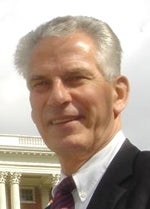Beacon Hill again is abuzz with talk about expanding gambling.
This year the discussion is about slot parlors, not Vegas-style resort casinos. State Treasurer Tim Cahill is taking the lead, not Gov. Deval Patrick. However, the reality of expanded gambling has not changed: it is a bad deal for the Bay State.
Regional Pains
One only needs to look to our southern neighbor, Rhode Island, to see why. The ailing Lincoln Park was converted from a racetrack to a slot parlor and renovated with a new name, Twin River. The promises were two-fold: Rhode Islanders would gamble within their own borders and the state would reap the benefits.
Neither promise was kept. Lawmakers are now considering a buyout to keep it open as owners default on loan terms and bankruptcy looms. Why not just let it fail?
But Rhode Island is not the only example. Though Pennsylvania legalized slots four years ago, only half of the parlors have opened. Maryland has been unable to sell all of its licenses, which were offered at a cost far below Cahill’s estimate.
From layoffs and steep revenue declines in Connecticut to incomplete building projects and empty hotel rooms in Vegas, gambling can no longer be termed recession-proof.
Such examples are not exactly a ringing endorsement for an industry being touted as at least a partial savior for the state.
Exaggeration, long a tool of gambling advocates, has once again reared its head. Not even two days after testifying before the legislature, prominent gambling specialists referred to Cahill’s projections as “significantly inflated.” So much for truth in advertising.
One Day At A Time
There is a reason why slots are known as the crack cocaine of gambling. They are the most addictive, as they prey on our brain’s pleasure centers, duping you into thinking you are going to win big. It is an endless cycle as your brain tries to use logic to solve the randomness of a slot machine.
The days of the “one-armed bandit” are long gone. Today’s video slots, those advocated by Cahill, make it as simple as pushing a button. There is no skill required. In fact, with the help of prepaid cards, gamblers are no longer required to put money into the machines with each play. Now, hundreds of bets are placed within an hour simply by lifting a finger.
All of this amounts to a recipe for a human disaster.
Video slot machines turn recreational gamblers into compulsive ones within a year, compared to nearly four years for other kinds of gambling.
In fact, the growing body of scientific evidence on the addictive nature of today’s new breed of slot machines may lead to additional federal regulations.
At the core of the issue, our state government is looking for a way to bring in extra revenue. Maybe there is a way to do it quickly and fairly; maybe there isn’t. But one thing is for sure: slots are not it.
Kris Mineau is the president of Massachusetts Family Institute in Woburn. He can be reached at krismineau@mafamily.org.

